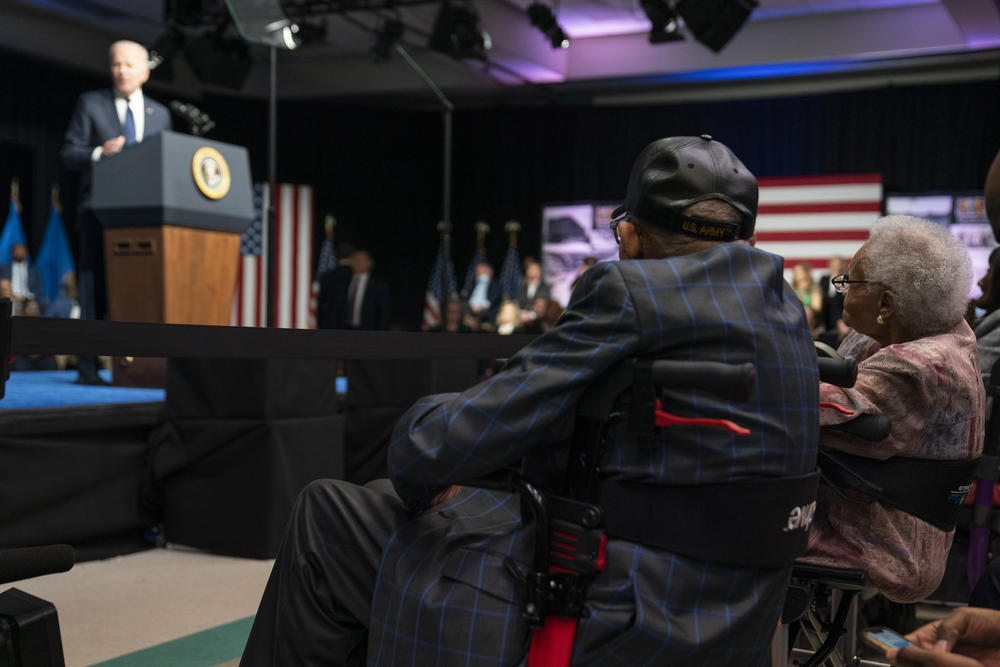
Caption
The oldest living survivor of the Tulsa race massacre Viola Fletcher listens as President Joe Biden speaks to commemorate the 100th anniversary of the Tulsa race massacre, at the Greenwood Cultural Center, Tuesday, June 1, 2021, in Tulsa, Okla.
Credit: Evan Vucci, AP




